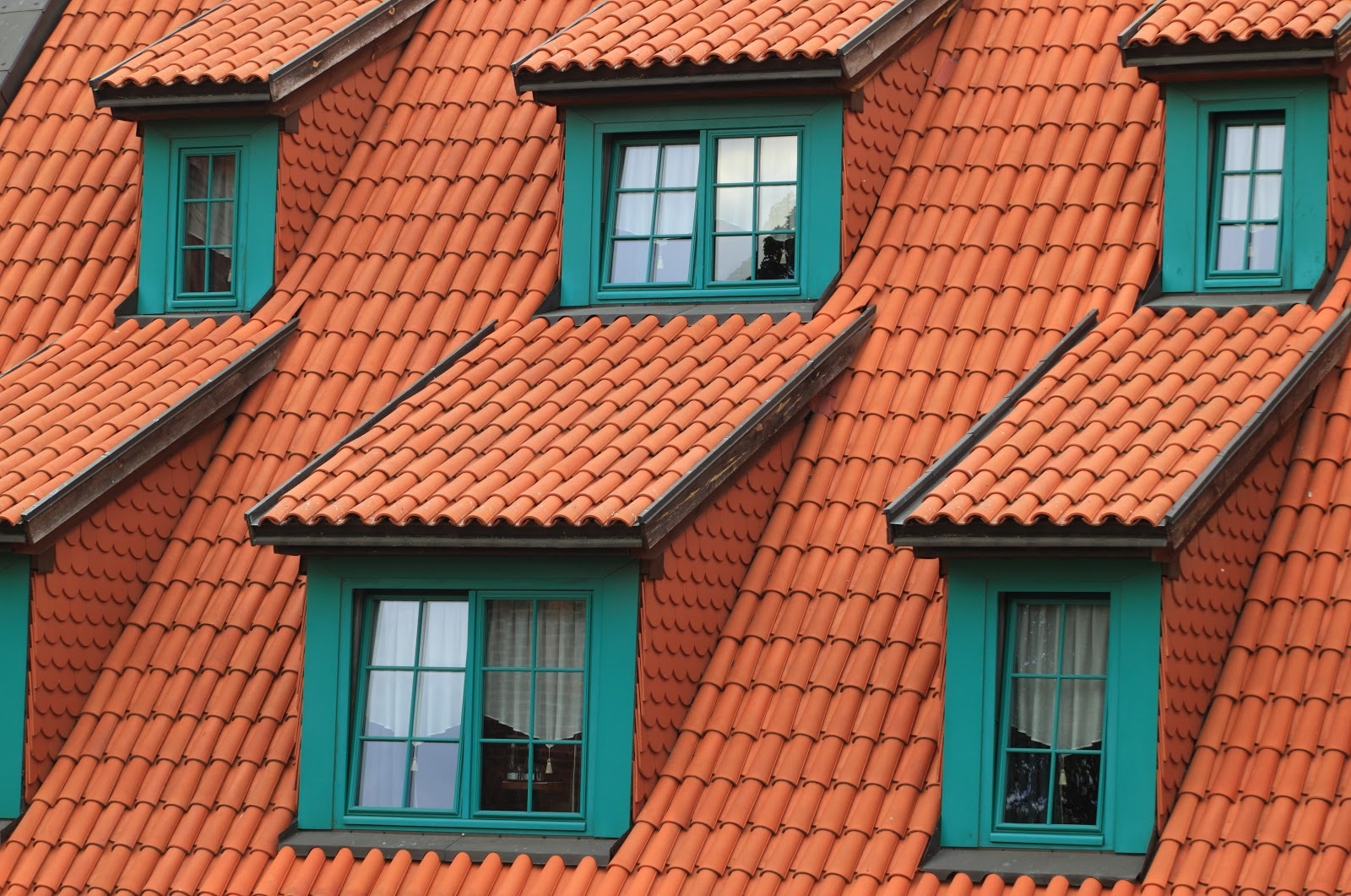
Tile roofs offer a glamorous appeal to those that love Southwest and Mediterranean architecture. Regardless of the materials that these tiles are made from, fired clay or concrete, there is more to them than meets the eye. Understanding the various pros and cons associated with the materials used to make these tiles can go a long way to helping you make the best decision when it comes to choosing between clay or concrete tiles.
Having narrowed your roofing options to two: clay roof tiles vs concrete roof tiles, you want to know if there is a significant difference between the two. Both offer a unique style, increase the value of your home and add instant curb appeal, but what are the specific advantages and disadvantages of each choice. What criteria should be used to make the final decision: cost, durability, or aesthetics?
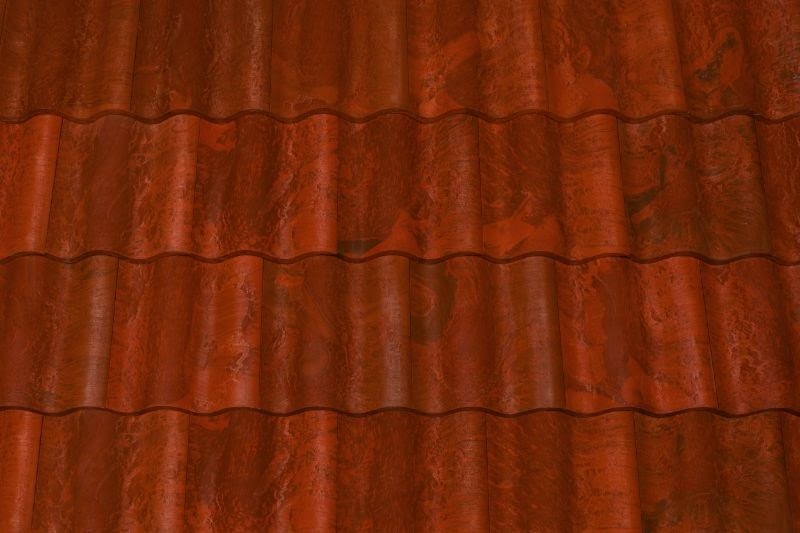
Which is Better: Clay vs. Concrete Tiles? Clay Roofing Tiles
Natural clay tiles have been around since the beginning of human history. Their use is believed to have started in China and the Middle East and quickly spread to Europe and beyond. Their popularity is due in part to the preponderance of natural clay in the ground. In modern production, the clay is mixed with particles of granite and then ground in a hopper to a fine consistency. Afterwards, water is added and the clay is formed into its final shape before being sent to the kilns to be fired and prepped for sale.
Cost Of Installing a Clay Tile Roof
A clay tile roof, on average, can cost between $10 to $18 per square foot. This works out to $1,000 to $1,800 per hundred square foot — or per square — the term by which roof jobs are usually figured. A 2500 square foot home with a 6/12 pitch roof would cost between $18,000 and $32,000. In addition, this may not account for additional framing needed to support a new roof.
Advantages of Clay Roofing Tiles
Insulation
Clay roofing tiles are great insulators — they absorb heat but do not conduct it. This makes them a great choice for roofing material because they will keep much of the heat from the Sun out of your house.
Durability
Clay is already a strong material. Once formed into tiles, however, they gain even more durability they are durability — helping them last up to 100 years.
Maintenance
Because of their durability and strength, clay roofing tiles are able to last longer which means they also require less maintenance. In fact, clay roofing tiles require much less maintenance than other roof tile types.
Recyclability
Fully recyclable. Clay can be crushed and turned back into tiles or used on other surfaces, such as roads, tennis courts, or baseball fields.
Design options
Clay tiles can be constructed in many shapes and colors offering many options to match most design styles, such as, rustic, log, Spanish, Victorian and even colonial homes.
Fire-rated
They are Class A fire-rated and will not burn, protecting your house from the outside external damages.
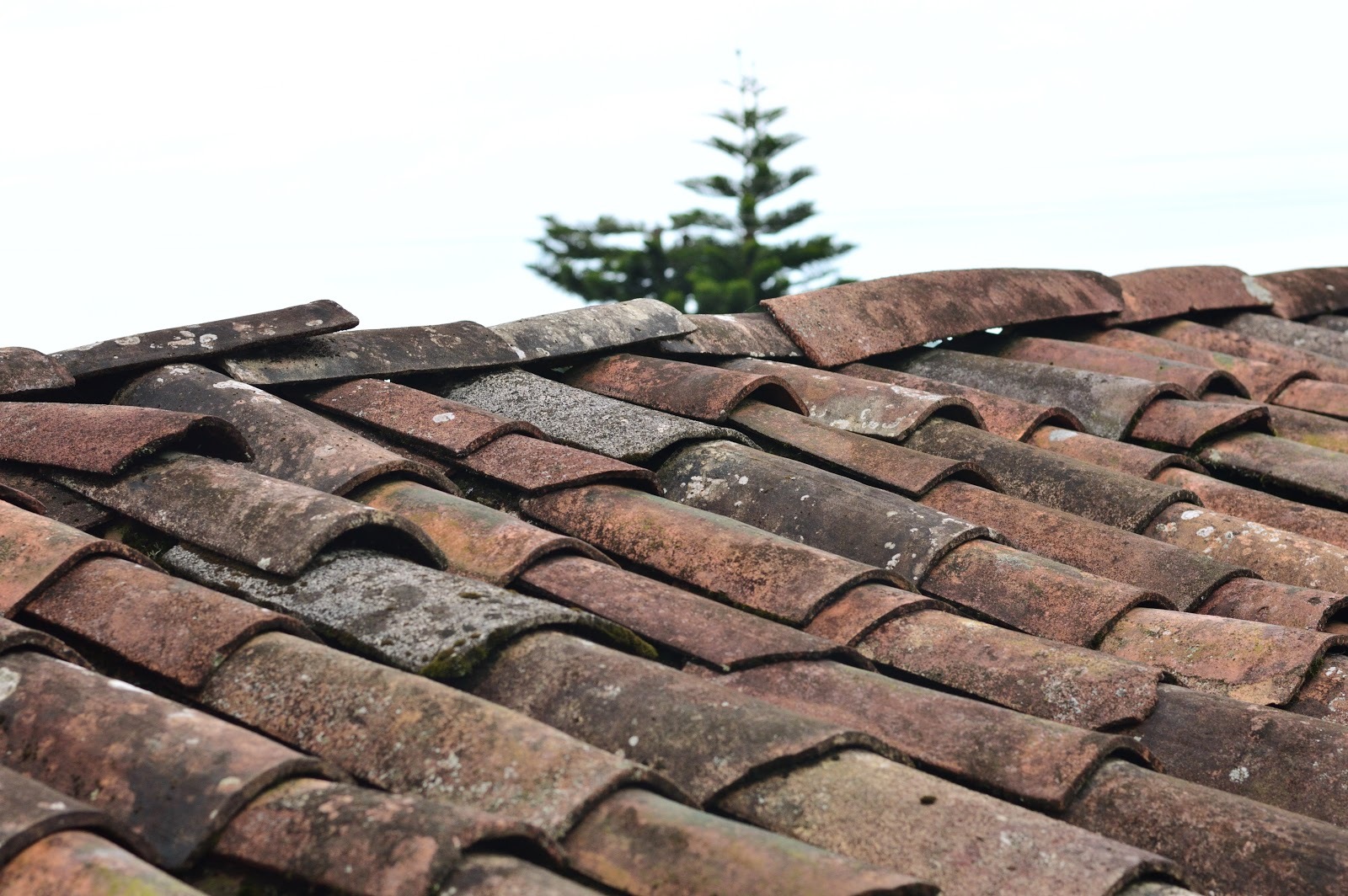
Disadvantages of Clay Roofing Tiles
Weight
Clay roofing tiles weigh more than other roofing tiles options. As such, they should not be installed on roofs with less than a 4/12 pitch. In addition, they require additional support for roof framing if your home was not built with the extra weight in mind.
Pricing
Though a beautiful aesthetic to buildings, clay tiles can be more expensive than many other roofing materials.
Installation
Installing clay roofs is different from other roofing materials. This means that, to ensure the most effective results, the installation of clay roofing tiles must be done by professionals with prior clay tile experience.
Susceptibility
As a general rule, clay roofing tiles should not be walked on since they are brittle and can break. Furthermore, they can be susceptible to damage from high winds.
Paint
Clay tiles cannot be painted, so you are limited to the natural clay colors, making color selection even more important. Learn about Brava's color selection here.
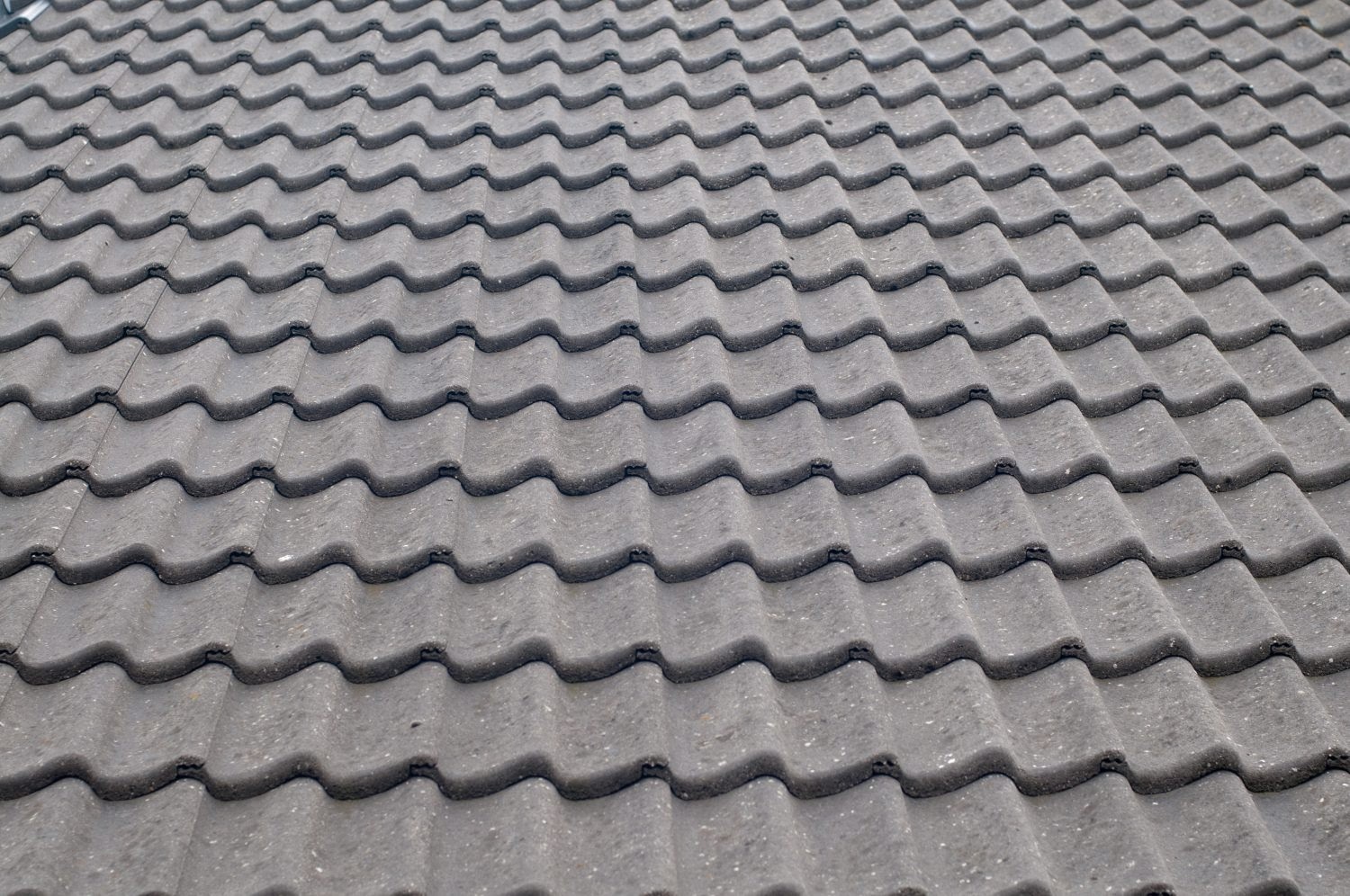
Concrete Roofing Tiles
Concrete roofing tiles are made from a mixture of water, sand, iron oxide, and cement and then molded into the desired shape, placed in an oven where the temperature and humidity are controlled and sprayed with a sealer that forces excess moisture out of the tile making them waterproof.
Cost Of Installing A Concrete Tile Roof
A concrete tile roof will cost $300-$500 per square installed, depending upon local material and labor prices. This may not include the labor and materials to upgrade your roof structure in order to support the extra weight of a concrete.
Advantages Of Concrete Roof Tiles
Mold-ability
Concrete roof tiles are flexible in design and shape. They can even be molded to mimic wood or asphalt or slate shingles.
Strength and Durability
As one of the strongest roofing materials, concrete tiles can last up to 50 years while remaining both fireproof and waterproof. They are also tested to ensure impact resistance and can withstand winds up to 200 mph.
Paint
Concrete roofing tiles can be painted any color and can be repainted multiple times. This make them an easy option to consider when thinking about designing and decorating the roof of a building.
Inclement Weather
Inclement weather impacts many roofing tiles, including concrete roofing tiles. However, concrete roofs are better equipped to handle a variety of inclement weather situations. They can handle heavy loads of rain and snow, and they remain airtight and impermeable to debris.
Disadvantages of Concrete Roof Tiles
Weight
Concrete is extremely heavy. The roof structure must be engineered to support 500-720 lbs per square. (On average, asphalt shingles weight 225-350 lbs per square.)
Color
Color of the tile may fade if it is a surface paint. If the color is added to the concrete when it is being formed, this is not normally an issue. This can be a concern if repairs are needed later on, however, as it will be difficult to match the older tiles.
Efflorescence
Concrete tiles can be susceptible to efflorescence if they are not sealed well. This gives the tile a chalky look but it can be cleaned off and prevented by sealing the tiles.
Brittleness
Concrete is very strong, but it can be brittle if walked on incorrectly during installation or repairs.
Installation
Installation requires specialists that have experience with clay or concrete roof tiles. There are specific requirements concerning the layout that must be followed for the best looking roof and to ensure that leaks are avoided. If not done my specialist with experience, the concrete roofing could become brittle throughout installation.
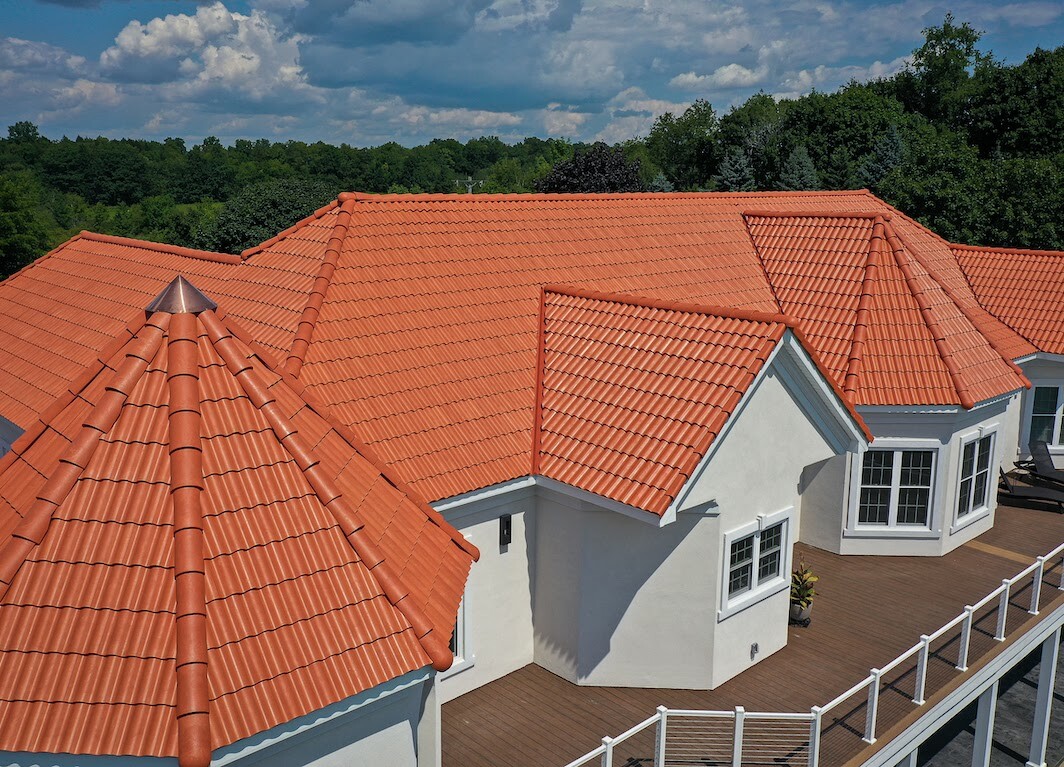
An Alternative to Clay vs. Concrete Roofing: Brava Synthetic Spanish Barrel Roof Tiles
When making a comparison between clay and concrete roof tiles you should consider an eco-friendly alternative that eliminates most of the disadvantages of both clay and concrete — synthetic barrel roof tiles.
Synthetic or composite roof tiles are lightweight and easy to install, eliminating the risk of damage from being walked on during installation or while performing maintenance.
Explore Brava's Synthetic Barrel Roof Tiles
Brava’s composite Spanish Barrel Tile is made from 100% recycled material and when the roof is replaced, the old tiles can be recycled again for another useful life. Our tiles have Class 4 impact ratings as well as Class A and C fire ratings.
Unlike clay and other traditional materials, Brava's composite barrel roof tiles can be manufactured in any color including custom mixes, allowing you to have the perfect color combination to accent your home.
Brava has been producing the highest quality synthetic/composite roofing tiles for decades. To make things easier for you, we send samples and quotes right to your home for convenient viewing (or direct you to a local showroom, if available). We will even help you find a contractor to work with.
You can also view our products online through our gallery of photos and videos or our home visualizer, which helps you visualize your home's appearance.
Our products have a 50-year limited warranty and we are available by phone or online to assist you in making the right decision for your next roofing project. Contact us today by phone at (844) 290-4196 or online.
For more homeowner information, please visit the links below:



